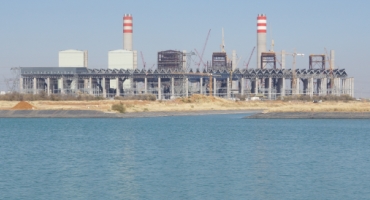
South Africa’s carbon tax fails to provide a sufficient deterrent to emitters, PwC has said in a recent report.
The tax came into force in 2019 at a rate of 127 rand ($8.5) per tonne of CO2 equivalent, rising by CPI +2% per year. Take into account tax-free allowances, though, and this tax falls to 6.35-50.8 rand ($0.42-3.4) for Phase 1, which runs until the end of 2022.
In addition, the tax applies only to Scope 1 emissions. This excludes emissions from the production of electricity purchased, Scope 2, or induced emissions, Scope 3.
“There is therefore uncertainty about the effectiveness of this measure alone to reduce carbon emissions,” the PwC Net Zero report said.
It also called for more transparency from the government on where the taxes collected go. Carbon tax revenues should be “ring-fenced for initiatives that further support South Africa’s move to net zero”.
South Africa is the most carbon intensive economy in the G20. The country has a carbon intensity of 599 tonnes of CO2 per million dollars of GDP, while the global average is 286 tonnes.
While the world’s carbon intensity fell in 2019 by 2.4% across the world, South Africa increased intensity, by 1.3%.
Dead planet
South Africa’s high unemployment rate makes the government wary of taking steps to tackle emissions, such as reducing coal consumption. “However, there will be no jobs on a dead planet,” PwC said.
Inaction will take its toll, particularly as importers of South African goods think more about carbon emissions. PwC noted plans from the European Union, for instance, to implement a carbon border tax.
Sasol accounts for 11% and Eskom 42% of South Africa’s emissions.
The South African government is on the receiving end of sustained criticism and legal challenges over its policies.
Two NGOs, groundWork and the Vukani Environmental Movement, are pursuing a case on the Mpumalanga Highveld asserting air pollution is a breach of constitutional rights. A court will hear the case on May 17-19.
Sasol has set out plans to cut emissions – but it is likely to only make progress after 2025. The company intends to move away from coal consumption and towards gas, with work alongside that on carbon capture.
Greenpeace Africa said this week that Sasol “have made it clear that they will not comply with the already weakened minimum emission standards in any shape or form by 2030. It is apparent that Sasol will continue to apply for postponement in this regard and Minister Barbara Creecy will concede to their requests in the name of supposed sustainable development.”
